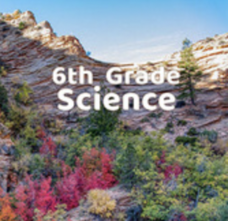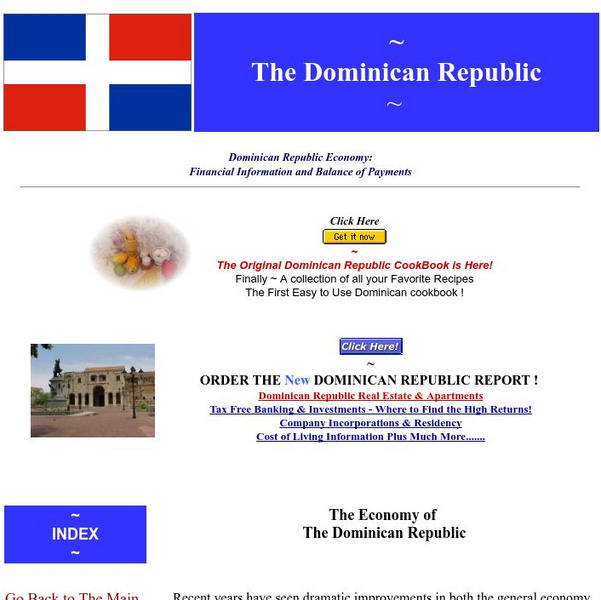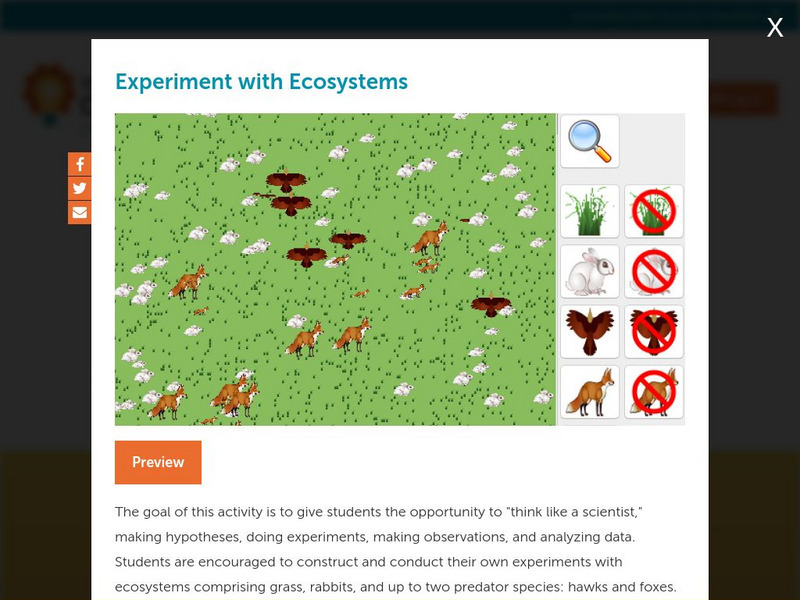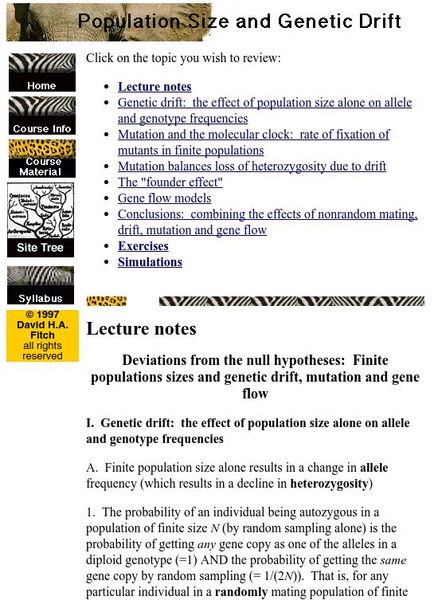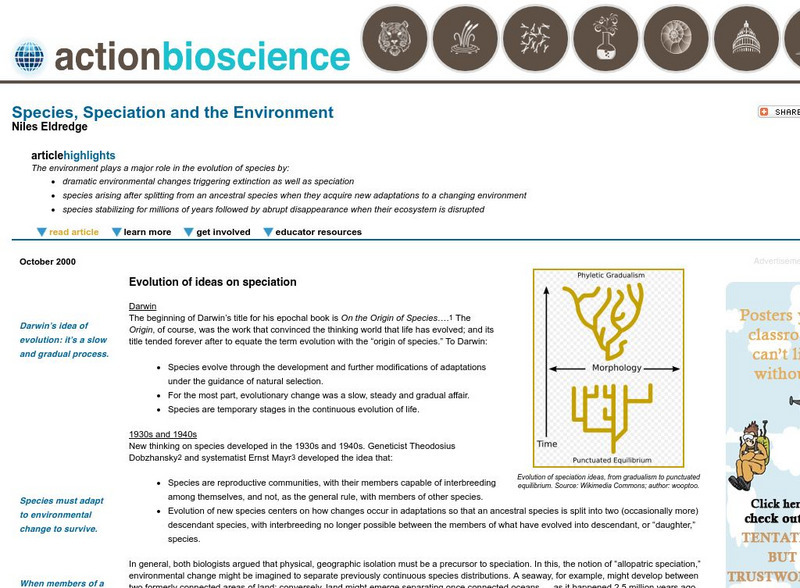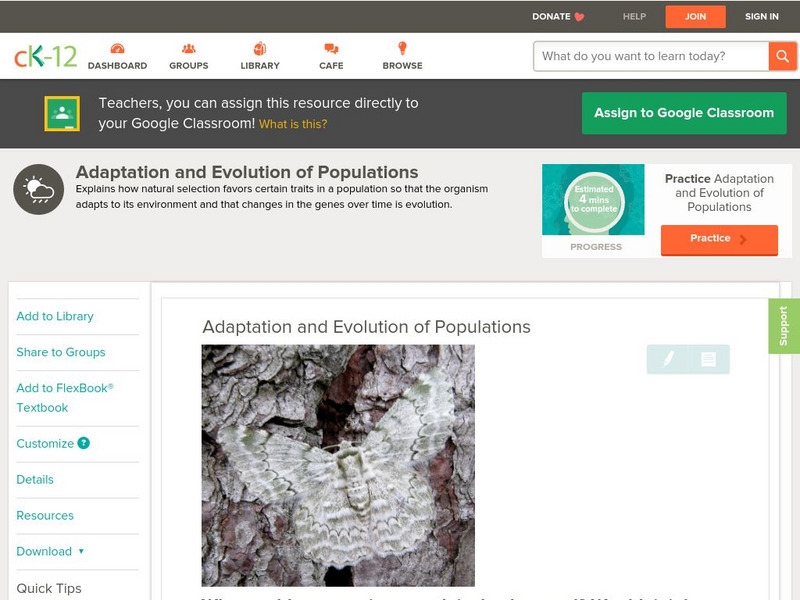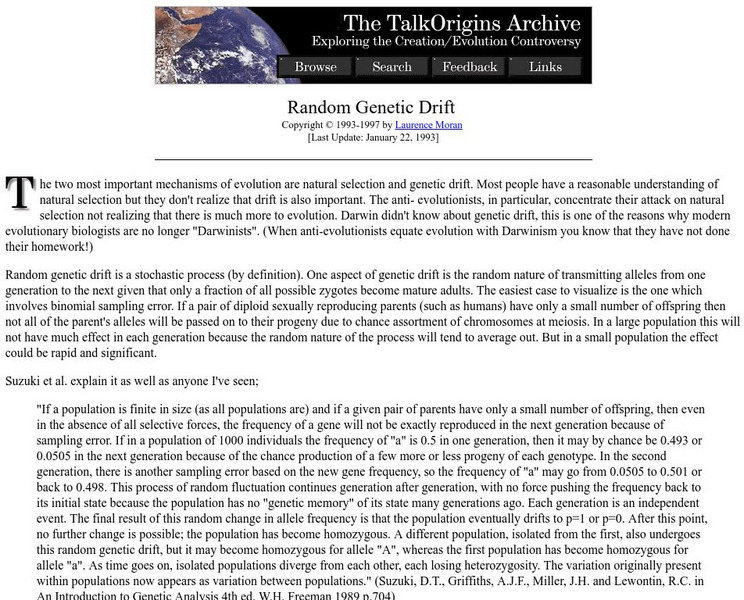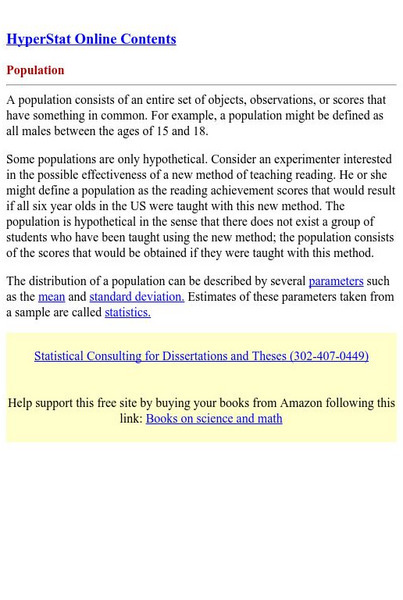Utah Education Network (UEN)
Utah Open Textbook: 6th Grade Science
There are many interactions among living things and their surroundings. By completing a reading, scholars learn about the Earth, the moon, and the sun and how they relate to the solar system. They also investigate the basics of physical...
Other
Carribean Living: The Dominican Republic
Carribean Living provides an excellent description of the present day economy in the Dominican Republic. It includes a special section on how the economy is changing.
National Geographic
National Geographic: Symbiotic Relationships in Marine Ecosystems
In this lesson students analyze videos to make observations about species, populations, and communities of organisms and discuss their symbiotic relationships. Then they create a hypothetical marine ecosystem and describe the adaptive,...
Vision Learning
Visionlearning: Statistics: Introduction to Inferential Statistics
An introduction to inferential statistics to find relationships and patterns in datasets.
University of Arizona
The Biology Project: Genetic Drift: An Explanation
This explanation of genetic drift is straightforward and easy to understand. Illustrations are provided to help visual learners
Concord Consortium
Concord Consortium: Stem Resources: Experiment With Ecosystems
Learn what happens to different populations of organisms as their ecosystem changes. Design your own experiment and make your own guesses with what the result will be with this virtual ecosystem. Also experiment with producer/consumer...
Utah Education Network
Uen: Themepark: Systems: Ecosystem
Find a large collection of internet resources organized around ecosystems. Links to places to go, people to see, things to do, teacher resources, and bibliographies.
Scholastic
Scholastic: Data Sampling
Data Sampling is a cutting-edge digital program designed to give students multiple opportunities to dig deeply into the mathematics and real-world purposes of representative sampling.
PBS
Pbs Learning Media: Building a Biodiversity Timeline
Students learn how various kinds of data and information can be gathered to create a biodiversity timeline that serves as evidence of changes in a population of a species.
New York University
Population Size and Genetic Drift: Lecture Notes
This is a college level lecture on genetic drift, complete with mathmatic formulae, includes special links.
Wolfram Research
Wolfram Math World: Population
MathWorld offers a number of related meanings for population in the realm of statistics.
Science Education Resource Center at Carleton College
Serc: Goldenrod Gall Investigation
In this life science field investigation students study goldenrod gall population.
American Institute of Biological Sciences
Action Bioscience: Species, Speciation and the Environment
The American Institute of Biological Sciences offers this article by Niles Eldredge, evolutionary theorist and curator at the American Museum of Natural History. Eldredge begins with Darwin's theories and summarizes subsequent thought,...
Other
Sur Del Sur: Homepage
The site from Sur del Sur provides extensive information about the current population of Argentina.
PBS
Pbs Teachers: Earth Day: What We Do Adds Up
Explore averages and rates of change and apply to calculate the cumulative effect of garbage thrown out by people over time. Use population data from the U.S. Bureau of Census to estimate how much garbage your county threw away during...
CK-12 Foundation
Ck 12: Earth Science: Adaptation and Evolution of Populations
Overview of the basic concepts behind evolution, such as gene variation and adaptations.[Free Registration/Login may be required to access all resource tools.]
Talk Origins Archive
Talk Origins Archive: Random Genetic Drift
Laurence Moran discusses one of the most important mechanisms of evolution, Random Genetic Drift.
World Wildlife Fund for Nature
World Wildlife Fund Russia
This resource provides bilingual news and facts about wildlife issues and projects across Russia. A small collection of beautiful images and video clips. Special section for kids with puzzles and nature-related games such as Rescue the...
Common Core Sheets
Common Core Sheets: Statistics & Probability 7.sp.1 Worksheets
Create or print a worksheet to assess students' understanding of identifying populations and samples.
Concord Consortium
Concord Consortium: Evolution: Natural Selection
The concept of interdependence in an ecosystem and its effect on the evolution of populations is further explored through a model of a dam. Students build a dam in the middle of the field, dividing the ecosystem in half to illustrate the...
Shodor Education Foundation
Shodor Interactivate: Spread of Disease
Models how a population of susceptible, infected, and recovered people is affected by a disease.
CK-12 Foundation
Ck 12: Earth Science: Biological Communities Study Guide
Review the relationship between populations and ecosystems.
Rice University
Hyper Stat Online Statistics Textbook: Population
A definition of "population" as it refers to statistics.
Other
Explore Learning: Food Chain Gizmo
In this ecosystem consisting of hawks, snakes, rabbits and grass, the population of each species can be studied as part of a food chain. Disease can be introduced for any species, and the number of animals can be increased or decreased...


